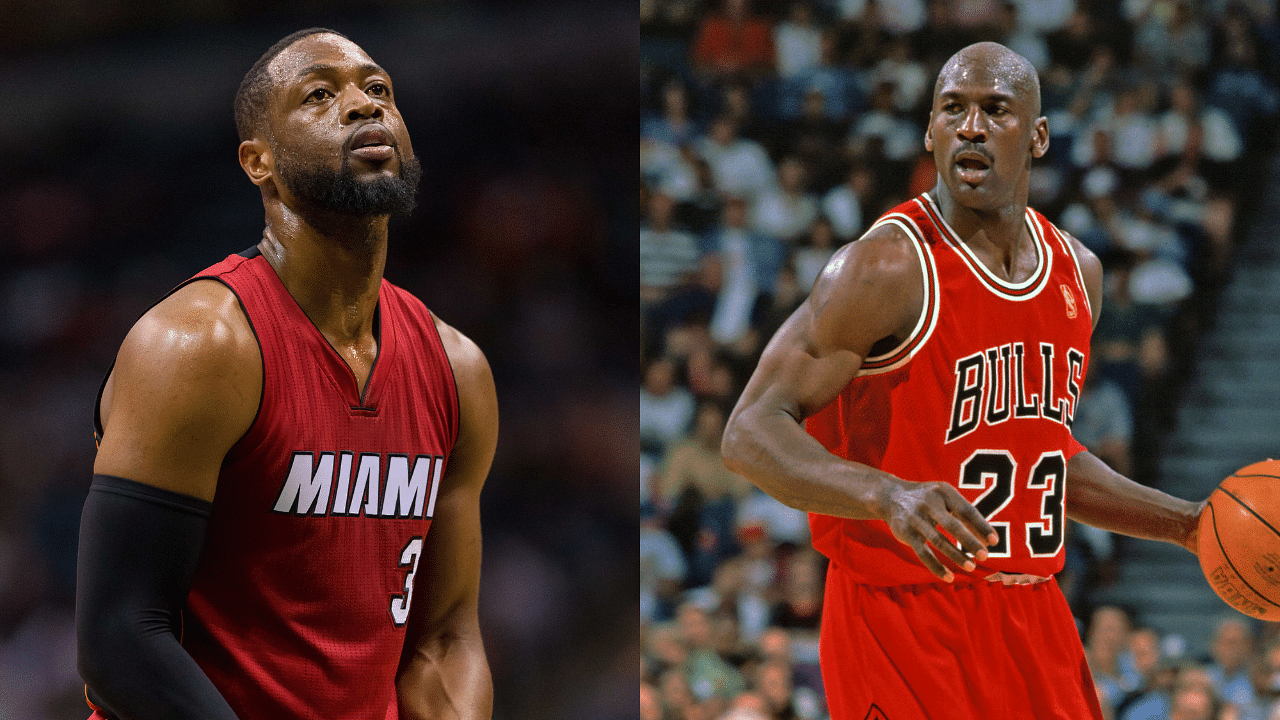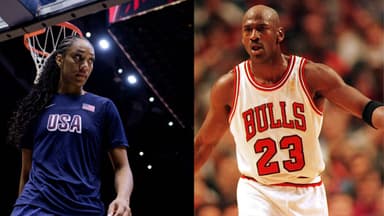Michael Jordan played a pivotal role in ushering in a new era for the NBA, both in the United States and globally. His status as a brand ambassador for the league elevated the popularity of basketball and the NBA to unprecedented heights. However, an interesting aspect of Jordan’s career is that he was significantly underpaid for the majority of his seasons with the Chicago Bulls. It was only in his final two seasons with the franchise that he earned a maximum contract of $30,000,000, making him the highest-paid athlete in the league. Despite this, the NBA and the Chicago Bulls were unable to truly compensate Jordan fairly for his immense contributions. Dwyane Wade expressed his thoughts on this matter during an appearance on Top Billin’ with Bill Bellamy.
Advertisement
Jordan’s financial success primarily stemmed from endorsements and various business ventures rather than his NBA contracts. His lucrative partnership with Nike, in particular, has played a significant role in accumulating his wealth, amounting to over $1.2 billion. In contrast, his earnings from NBA contracts totaled around $96 million, representing only a fraction of his impressive net worth of $2 billion.
Dwyane Wade and Bill Bellamy reflect on the evolution of NBA contracts over the years
In the recent episode of the Top Billin’ podcast, host Bill Bellamy engages in a conversation with Dwyane Wade about the evolution of NBA contracts. During their discussion, they touch upon the topic of how Michael Jordan was underpaid and undervalued by the Chicago Bulls and the NBA during the 1980s and ’90s. They highlight the significant progress the league has made since then.
To illustrate the disparity, Bellamy compares Jordan’s annual earnings of $30 million in his final two seasons with the Bulls to the current landscape of NBA contracts.
He mentions Chris Paul, who is set to earn $38 million despite being traded from the Washington Wizards to the Golden State Warriors. This stark difference emphasizes how Jordan, despite leading the Bulls to six championships and elevating the franchise’s value, was not appropriately compensated in comparison to the present-day standards of NBA contracts.
Dwyane Wade concurred with Bellamy’s viewpoint and provided insights into the current contract landscape within the league. Wade, reflecting on his prime years alongside LeBron James on the championship-winning Miami Heat team, acknowledged their belief that they deserved maximum contracts. Expanding on the topic, Wade remarked:
“When we signed with the Heat, we [Dwyane Wade and LeBron James] was like ‘why is it a cap?’ LeBron James deserved 500 million at that time. We knew his value, I knew my value. My value was more than what the contract said. So now, they’re getting the value we thought.”
According to Wade, newer players in the NBA have learned to assert their value and not allow contracts to undermine their worth. This shift in mentality is evident in the significant contracts even rookies are now able to secure in the league. The Flash suggests that this approach differs greatly from how the NBA operated just a decade ago, highlighting the evolving dynamics of player contracts and their perceived value in the league.
Chicago Bulls owner Jerry Reinsdorf paid Michael Jordan even after he retired
The Chicago Bulls could not ignore or undermine Michael Jordan, even after he retired for the first time in 1993. MJ had increased the revenues for the franchise to a much greater extent. The Bulls held a large share of the revenue from the officially licensed items sold by the league. All of this was possible thanks to Jordan’s immense popularity.
Michael Jordan briefly pursued a baseball career, joining Chicago White Sox’s minor league side, Birmingham Barons. Given Jerry Reinsdorf also owned the White Sox, he continued paying Jordan his Bulls salary. His Airness eventually returned to playing basketball in 1995.








